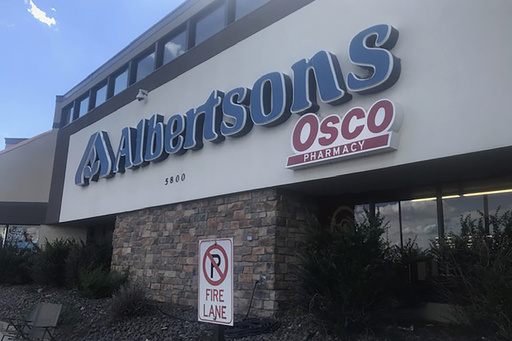
The ambitious merger plan between Kroger and Albertsons, which was set to become the most extensive supermarket consolidation in U.S. history, collapsed on Wednesday. Albertsons has withdrawn from the proposed $24.6 billion deal, leading both companies to exchange accusations regarding their commitment to the merger process.
Albertsons has moved forward with legal action against Kroger, seeking $600 million in termination fees and additional billions to cover legal expenses and diminished shareholder value. In response, Kroger labeled these claims as “baseless” and argued that Albertsons is not entitled to any fees.
In a statement issued Wednesday, Kroger expressed that after weighing their options, it was no longer considered beneficial for the company to pursue the merger as planned.
This surprising split came just a day after two judges issued rulings stopping the merger from proceeding. U.S. District Court Judge Adrienne Nelson from Oregon issued a preliminary injunction blocking the proposed deal, allowing an in-house judge at the Federal Trade Commission (FTC) to deliberate further. Shortly after, Superior Court Judge Marshall Ferguson in Seattle imposed a permanent injunction against the merger, ruling that its approval would lessen competition and breach consumer protection laws.
Although both companies had the option to appeal the rulings or pursue hearings at the FTC, Albertsons’ sudden exit shocked many analysts. Burt Flickinger, a well-respected retail analyst, expressed disbelief at Albertsons’ decision to take such a “scorched earth approach,” suggesting they should have reflected on the court’s decision before escalating the matter legally.
Flickinger also noted that finding another merger partner would likely be challenging for Albertsons due to its significant debt and underperformance in several markets. He predicted that consumers could soon notice the repercussions of the failed merger, especially since Albertsons tends to price its groceries 12% to 14% higher than Kroger and its other competitors.
Albertsons CEO Vivek Sankaran indicated during federal hearings in September that if the merger did not materialize, the company might have to consider “structural options” such as layoffs, store closures, and withdrawal from specific markets. “I would have to consider that,” he stated, emphasizing the stark contrast in outcomes between achieving the merger and not.
However, in a statement following the split, Sankaran expressed optimism about Albertsons’ future, assuring stakeholders that the company is moving forward in a strong financial situation, highlighted by a 1% revenue increase to $18.5 billion, albeit accompanied by $7.9 billion in debt.
Kroger also affirmed its stable financial status, despite a slight revenue decrease to $33.6 billion in their latest quarter. On the same day, Kroger announced a $7.5 billion share buyback program, marking a revival in corporate spending after a two-year hiatus.
The merger negotiations began back in 2022, with both corporations arguing that their amalgamation would enhance competition against major retailers like Walmart, Costco, and Amazon, which have been snatching up larger segments of the grocery market. Together, they would have commanded roughly 13% of the U.S. grocery market, compared to Walmart’s 22%.
As part of the merger agreement, there was a plan to divest 579 stores located in competing areas to C&S Wholesale Grocers, a supplier catering to independent grocery chains. Nevertheless, the FTC alongside Colorado and Washington state raised legal challenges to the merger earlier this year, asserting that it would contribute to inflated prices and lower wages for workers by diminishing competition. They also criticized the store divestiture plan, claiming that C&S lacked the capability to manage the transferred stores effectively.
In its recent declaration, Albertsons accused Kroger of failing to exert “best efforts” and taking “any and all actions” necessary to secure the required regulatory approval for their merger. According to Albertsons, Kroger rejected needed asset divestitures for antitrust clearance and disregarded input from regulators while dismissing stronger potential buyers for divested assets.
In response, Kroger firmly rejected these claims, insisting that Albertsons was responsible for “repeated intentional material breaches and interference” throughout the merger process.
Kroger operates 2,800 stores across 35 states, with well-known brands including Ralphs, Smith’s, and Harris Teeter, while Albertsons runs 2,273 stores in 34 states, featuring brand names like Safeway, Jewel Osco, and Shaw’s. Collectively, these companies provide employment for around 710,000 individuals.
In a surprising move, Kroger filed a lawsuit against the FTC in a federal court in Ohio in August, contesting the legality of the FTC’s administrative hearings, given that the agency could challenge the merger in federal court in Oregon simultaneously. The FTC indicated that it plans to update the court about its next steps by December 17.
The situation in Colorado remains ongoing, where the state also filed a lawsuit to block the merger. Colorado Attorney General Phil Weiser indicated he is still awaiting a ruling from the state judge regarding the matter, which also involves allegations of an illegal no-poach agreement between the two companies during a 2022 strike.
Following the news, Albertsons’ shares fell by 1.5% while Kroger’s stock experienced a 1% increase on Wednesday.
